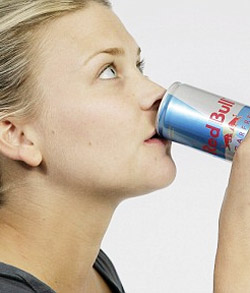
Cutting down Researchers from Action on Sugar are calling for strict limits on added sugars.They argue that as the body can generate energy from food such as fruits, vegetables, pasta and rice, there is no need for additional sugar beyond this.Their survey includes branded and supermarket products with words like energising, stimulation or caffeine on the product name as well as beverages found in energy drinks sections in supermarkets.
They say there is no reason the amount of sugar in energy drinks could not be reduced as some beverages had much less than those on their worst offenders list.Graham MacGregor, professor of cardiovascular medicine at Queen Mary University of London and chairman of Action on Sugar, said: Children are being deceived into drinking large cans of this stuff, thinking they are going to improve their performance at school, during sports, or even on a night out.In reality all they are doing is increasing their risk of developing obesity or type 2 diabetes which will have lifelong implications on their health.Type 2 diabetes is a leading cause of blindness, limb amputation and kidney dialysis hardly the image of a healthy, active person.
The British Soft Drinks Association (BDSA) says: These products are called energy drinks for a reason they deliver a caffeine or glucose-based energy boost.They are now available in a variety of types, flavours and sizes, including a range of low and no-calorie options, so that consumers have a much wider choice.BSDA members do not promote energy drinks to children under 16 and all products are clearly labelled in compliance with EU regulations.
Simple changes Dr Alison Tedstone of Public Health England said: Energy drinks are usually high in sugar, which causes tooth decay, and also high in calories.Teenagers are consuming 50% more sugar than the maximum recommended amount and the biggest contribution comes from sugary drinks.
The Change4Life Sugar Swaps campaign aims to help families cut down on their sugar intake by making simple changes like swapping sugary drinks for water, lower-fat milks or sugar-free, diet, no added sugar drinks.Both the World Health Organization and government advisers in England have recently proposed a cut in their recommendations for daily sugar consumption.The proposed new target of 5% of energy intake from free sugars amounts to about 25g for women (five to six teaspoons) and 35g (seven to eight teaspoons) for men, based on the average diet.